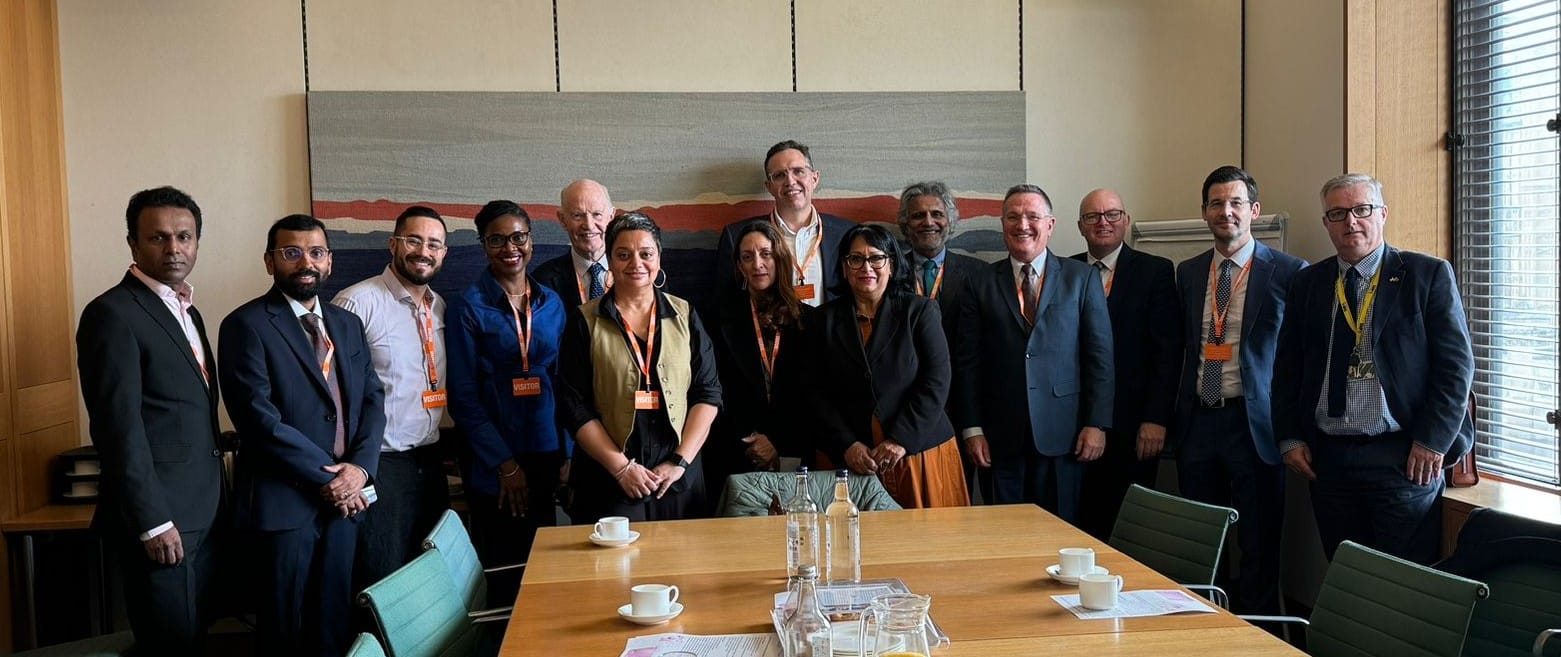Matthew Jones of the FoRB foundation joined with Jim Shannon MP, Baroness Verma, Brendan O’hara MP and organisations from around the UK to discuss the benefits of the REDI Index in the workplace. The REDI Index Standard introduced by Brian Grim of FoRB and Business has made a notable difference within organisations around the world.
Jim Shannon MP opened the meeting with remarks on the importance of spreading a focus on religious freedom in business to new business sectors, creating new norms and making this issue a real priority for businesses across the United Kingdom and beyond. Baroness Verma also spoke about the important of being collectively inclusive of all faith groups and shaping the narrative around faith in the workplace differently than how it is often perceived (i.e. as a source of division, contention, and hidden agendas). Instead we can recognize that showing respect for religion in the workplace is part enabling employees to be their whole selves and give themselves more fully to their work.
Emma Pace of Baringa shared how they use kindness within the organisation to promote inclusivity, including setting up an interfaith network within the organisation and advertising these efforts on their website, whilst Alex Gold of OVO shared how they fostered a multifaceted culture of belonging across metrics like gender, neurodiversity, generation, and religion. Mr. Gold also discussed OVO’s efforts (as a retailer) to hold third-party providers accountable for respect for religion in the work place as well. Bruce Owen spoke on behalf of Equinix, stating how when you talk about faith in business it encourages a space where people can do the very best work of their careers. We also heard from Oliver Pawle, Binna Kandola and Vinrod Subramanian on the various topics surrounding FoRB and Business.
Overall, takeaways included recalling the growing evidence that business success criteria like productivity and retention are demonstrably related to freedom of religious expression at work, and the importance for business leaders to assemble and discuss contemporary challenges more often, especially as there are growing misconceptions and tensions about religious expression in the workplace. Instead, with a full focus on creating space for employees to be their full selves across religious as well as other dimensions, we can create a culture and environment of peace and productivity.

